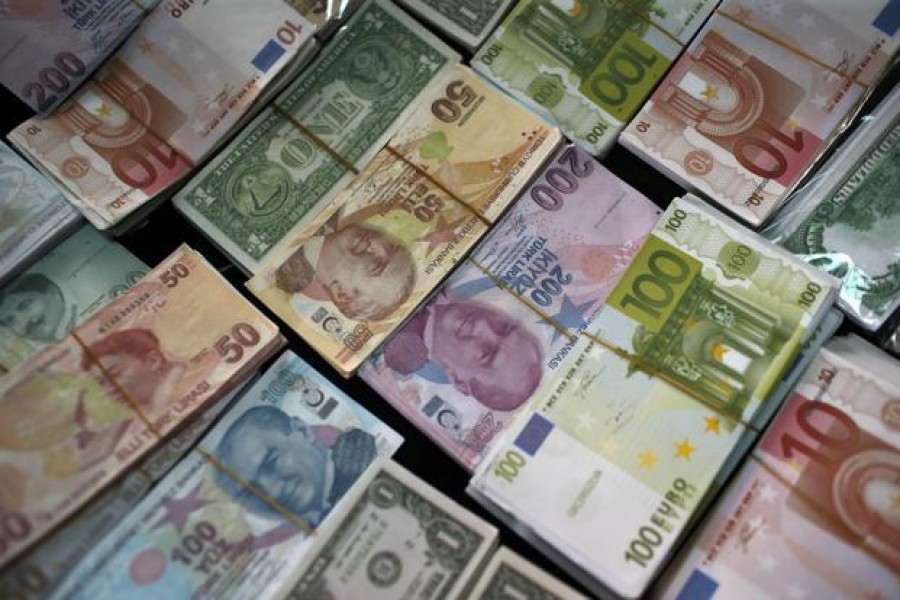Globally, the currencies of small economies are taking a beating against major global currencies like the US dollar. The main reason behind the fast, and in some cases, free fall is the wavering confidence in the concerned currencies, which originated first from the trade restrictions and then from trade wars started by the USA. Small economies, which have more economic relations with the USA through export-import, find themselves at the receiving end due to imposition of fresh tariffs on exports of these countries to the United States of America. Many of the small and emerging economies' current account balances went red from green during the last few months. This meant the demand for reserve currencies like the US dollar was far outweighing the supply of such currencies, resulting in the fall in values of currencies in the market place of deficit economies.
The recent fall in the values of currencies in economies like Turkey and India has little connection with the performance of the real economies; but if the trade wars and trade gaps persist, these gaps will definitely bite the real economies. Turkey was having a good economic growth in the last few months, but still its currency 'Lira' lost over 40 per cent in value against US dollar in the first six months of the current fiscal year (FY). The Indian Rupee is being traded at the lowest rate, at Rs 70 against a US dollar, which is the lowest rate for the Rupee in years. The Pakistani Rupee is also on the downslide against the US dollar. The Bangladesh currency, though performing better till now, is under pressure against the US dollar. And if the current account deficit of Bangladesh continues to swell, the Bangladesh currency may also give in to the US dollar.
The global economic system is now under threat from the trade wars initiated and pressed forward by the USA. Today, Turkey is taking most of the beating; tomorrow another country will face the same fate. At the end, the global inflation may crop up and the world will see a lot less of trade and investment among nations. In the race to save economies by erecting commensurate or proportionate tariff walls, all counties will be losers; but the only difference would be that it would be more for some and less for others.
From the global trade war, military confrontations may also erupt among nations, which, if happens, will throw the whole global trade into jeopardy. The surge towards free global trade and investment through the WTO route has already been halted. The US economy, though still bigger by far than other economies including China, will also be loser at the end. Whatever we may have learned from our economics text books about the benefits of free trade is now being thrown away by what President Trump is doing with regard to global trade. By trying to protect the interests of the US economy, Trump will ultimately do more harm than good to his economy. In the short run, the US economy may shine, but in the long run that glow will start to fade.
The US citizens will have to pay more for consumer items than what they have paid in the past. Turkey, if pressed further, may resort to the imposition of capital control for a temporary period, as was done by Malaysia during the East Asian financial crisis of 1997. The problem is very simple: the current account deficit is widening as more people are selling local assets and asking for dollars; and also, lesser inflow of foreign funds in these economies is resulting in the fall in price of local currencies. At one stage, the fall will halt and the affected economies will get stabilised, albeit at a lower level.
The war started by the USA in the trading and financial sector will teach a lesson to small economies. That lesson is: unless their trade partners are reliable, they can face problems anytime. If a crisis situation is created, be that through sanction or by erecting high tariff wall, the economies that are targeted are bound to lose. Global trading system is now shifting away from the rule-based one, and small economies will be the worst losers during such a shift.
The world will see more alignments and re-alignments among nations in the coming years. The old trade blocks will falter and new trade blocks will come into being. Many small economies may opt for other reserve currencies, by abandoning the US dollar. Already, some of the smaller economies like Iran are opting for the Chinese Yuan. And in the coming years, the supremacy of the greenback (another name for the US dollar) will be on the wane in the global arena.
The writer is Professor of Economics at the University of Dhaka.
[email protected]


